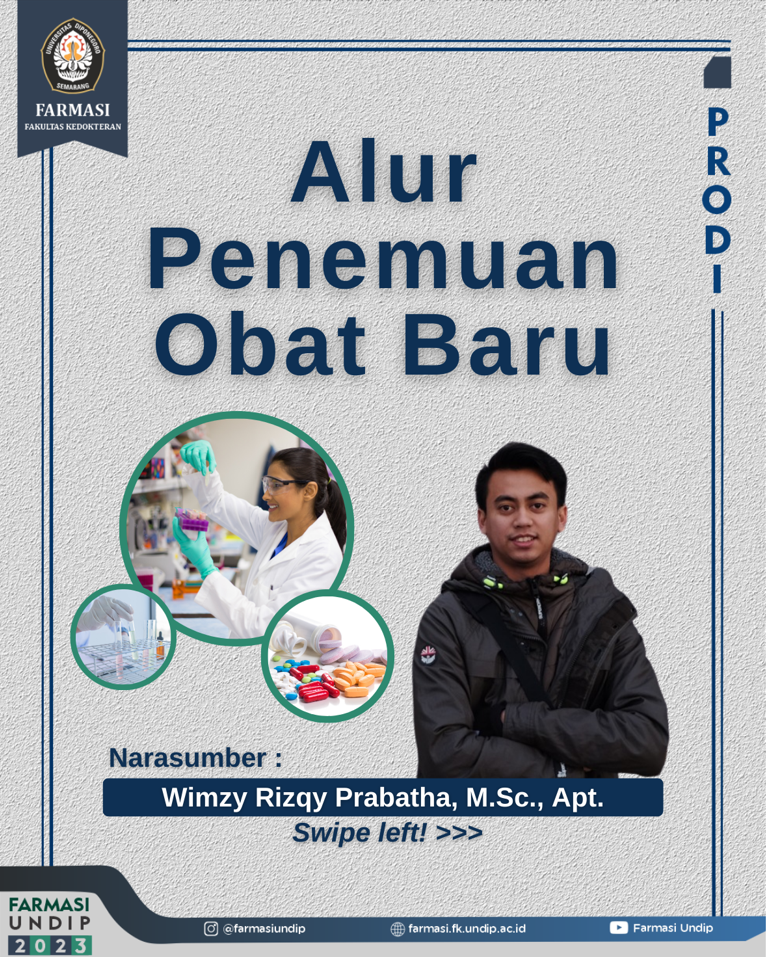Drug discovery and development is constantly carried out to continue to produce useful products in the world of health. So what is the stages of new drug discovery? The following is an explanation of the question and answer conducted with Mr. Wimzy Rizqy Prabhata, S.Farm., M.Sc., Apt.
Q: How many stages are involved in the discovery of a new drug?
A: The drug discovery stage consists of 5 stages, namely:
- Stage 1 drug development, where drugs are developed from a wide variety of sources (chemical, natural, biological, etc.)
- Stage 2 preclinical trials (including in silico, in vitro, and in vivo trials)
- Stage 3 clinical trial (consisting of 4 phases)
- Stage 4 drug authority (FDA/EMA) approval after going through phase IIIA clinical trial
- Stage 5 monitoring of drug safety on the market which is also a phase IV clinical trial
Q: How many phases of clinical trials are involved in the discovery of new drugs?
A: There are 4 phases of clinical trials:
- Phase I to know the safety, pharmacokinetics, pharmacodynamics with healthy human subjects
- Phase II to evaluate and select the best dose of drug administration
- Phase III to determine the effectiveness of a new drug against a symptom compared to standard therapy or placebo
- Phase IV or post marketing surveillance, to determine the effectiveness and safety of long-term drugs with label use
Q: In which phase of clinical trials can a drug begin to apply for permission from the drug authority?
A: In phase III, especially phase III A, because after phase IIIA, drug candidates are considered to have sufficient data to be considered for distribution permits. This is also to shorten the time for new drug discovery because it takes time to analyze a lot of data from phases I-IIIA to ensure a drug candidate is viable to be traded to the public. However, permission by the FDA or drug authorities will only be obtained if the pharmaceutical company has completed data from phase IIIB clinical trials.
Q: What is the difference between chemical compound drugs and biological drugs?
A: Chemical compound drugs are drugs derived from chemical compounds resulting from chemical synthesis, for example drugs: paracetamol and ibuprofen. While biological drugs are drugs obtained from biological sources, for example from bacteria, examples of biological drugs: insulin and trastuzumab.
Q: What is the difference between generic drugs and biosimilar drugs?
A: A generic drug is a drug that is a chemical compound patent drug whose patent periode is expired, while a biosimilar drug is a drug from a biological patent drug whose patent period is expired. The two have different drug development stages. A generic drug is developed without going through clinical trials, but the biosimilar drug remains through clinical trials.
——————————————————————————————–
Pharmacy Study Program | Faculty of Medicine | Diponegoro University | 2023 | Ig: farmasiundip

